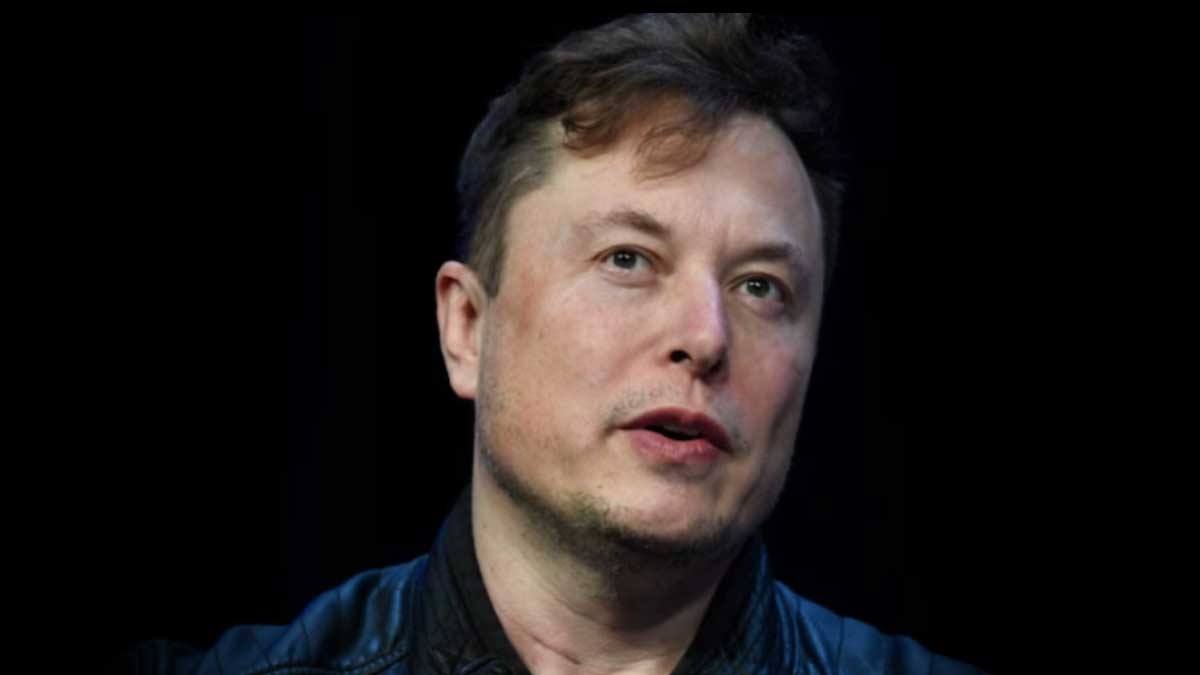- Home
- Billionaires
- Investing Newsletters
- 193CC 1000
- Article Layout 2
- Article Layout 3
- Article Layout 4
- Article Layout 5
- Article Layout 6
- Article Layout 7
- Article Layout 8
- Article Layout 9
- Article Layout 10
- Article Layout 11
- Article Layout 12
- Article Layout 13
- Article Layout 14
- Article Sidebar
- Post Format
- pages
- Archive Layouts
- Post Gallery
- Post Video Background
- Post Review
- Sponsored Post
- Leadership
- Business
- Money
- Small Business
- Innovation
- Shop
Recent Posts
Cards Against Humanity Sues Elon Musk for $15M Over Land Use

Cards Against Humanity, the company known for its controversial card game, has filed a $15 million lawsuit against Elon Musk, alleging that employees of his aerospace company SpaceX trespassed on and damaged land near the U.S.-Mexico border. This lawsuit, filed in a Texas state court on Thursday, claims that SpaceX encroached on land owned by Cards Against Humanity, cleared vegetation, dumped gravel, and used the site to store construction equipment and vehicles—all without permission. This legal battle marks another instance of Cards Against Humanity targeting Musk in a series of stunts and pranks the company has orchestrated over the years.
The lawsuit accuses SpaceX of treating the property as its own for at least six months, causing significant environmental damage. Cards Against Humanity asserts that restoring the land to its original condition would cost $15 million. The company purchased the property in 2017 with funds raised from supporters as part of a campaign to oppose then-President Donald Trump’s plans to construct a wall along the U.S.-Mexico border.
The plot of land in question is located near Brownsville, Texas, an area where SpaceX’s operations have expanded in recent years. According to the lawsuit, SpaceX’s actions on the land have destroyed its natural state, and the company has yet to seek consent from Cards Against Humanity. The gaming company maintains that the land was acquired to hinder the construction of Trump’s border wall. In 2017, Cards Against Humanity raised over $2 million from supporters, each donating $15 to the cause. The company promised to make it as difficult and expensive as possible for the government to build the wall, using the property as part of its broader resistance to Trump’s immigration policies.
Cards Against Humanity’s legal filing also takes aim at Musk’s personal reputation. The suit describes Musk as a billionaire who has a pattern of taking advantage of situations without remorse or explanation, calling out what it characterizes as a public image of disregard for the rights and concerns of others. The lawsuit even references a New York Times article that claims Musk has failed to deliver on charitable promises made to the Texas county where SpaceX is headquartered. According to the suit, Musk’s failure to meet these commitments raises questions about his true intentions and priorities, particularly when it comes to community responsibility.
One of the key concerns highlighted in the lawsuit is the potential damage to Cards Against Humanity’s relationship with its supporters. The company claims that SpaceX’s unauthorized use of the land could give the false impression that there is an ongoing partnership between the two entities, which the game maker strongly denies. The lawsuit emphasizes that nothing could be further from the truth, stating that any perceived association with Musk or SpaceX would be offensive to Cards Against Humanity. The company asserts that SpaceX’s actions have not only harmed the physical land but also jeopardized the trust and goodwill it has built with its supporters, who contributed funds for the specific purpose of thwarting Trump’s border wall.
The lawsuit represents the latest in a series of politically charged pranks and stunts orchestrated by Cards Against Humanity, which has a history of using its platform to draw attention to social and political issues. The company’s legal filing against Musk reflects its broader mission to challenge individuals and entities it perceives as exploiting ordinary people for personal gain. In its court complaint, the company notes that both Trump and Musk have been frequent targets of its campaigns. In the run-up to the 2016 presidential election, Cards Against Humanity launched a satirical expansion pack for its game, offering “Vote for Hillary” and “Vote for Trump” editions, with proceeds directed to Hillary Clinton’s campaign. The company also purchased billboards that mocked Trump with messages like “If Trump is so rich, how come he didn’t buy this billboard?”
More recently, in 2022, Cards Against Humanity incorporated anti-Musk sentiment into its marketing tactics. The company offered discounts to users who could solve complex CAPTCHA puzzles, a common internet verification tool. One puzzle required users to select images of “assholes” from a lineup that included Musk, alongside other controversial figures such as Jeff Bezos, Jeffrey Epstein, and Tucker Carlson. This marketing ploy was designed to both entertain and critique powerful individuals whom Cards Against Humanity views as out of touch with the concerns of everyday people.
In another Musk-targeted stunt, the company launched a parody social media platform last November in response to Musk’s acquisition of Twitter, now rebranded as X. The platform, called Yowza, allowed users to post only a single word—“Yowza”—in a satirical jab at the constraints and limitations of social media. Cards Against Humanity promoted Yowza as a space free from misinformation, hate speech, and negativity, taking aim at the controversies surrounding X, where critics claim hate speech and false information have proliferated since Musk took control.
This lawsuit against Musk is not just about reclaiming the damaged land but also fits into Cards Against Humanity’s broader strategy of drawing attention to the actions of powerful individuals and companies. The company has positioned itself as a defender of the rights and interests of ordinary people, often using humor and satire to highlight social and political issues. With this latest legal challenge, Cards Against Humanity is once again leveraging its platform to target figures it views as emblematic of corporate greed and disregard for the public good.
As the lawsuit progresses, it remains to be seen how SpaceX will respond to the accusations and whether Musk will personally address the claims made against him. In the meantime, Cards Against Humanity continues to use its influence not only to entertain but to spark conversations about the intersection of politics, corporate power, and social responsibility.
Recent Posts
Categories
- 193cc Digital Assets2
- 5G1
- Aerospace & Defense44
- AI32
- Arts3
- Banking & Insurance11
- Big Data3
- Billionaires230
- Boats & Planes1
- Business309
- Careers13
- Cars & Bikes66
- CEO Network1
- CFO Network17
- CHRO Network1
- CIO Network1
- Cloud10
- CMO Network18
- Commercial Real Estate7
- Consultant1
- Consumer Tech157
- CxO1
- Cybersecurity54
- Dining1
- Diversity, Equity & Inclusion4
- Education7
- Energy8
- Enterprise Tech29
- Events11
- Fintech1
- Food & Drink2
- Franchises1
- Freelance1
- Future Of Work2
- Games135
- GIG1
- Healthcare75
- Hollywood & Entertainment158
- Houses1
- Innovation37
- Investing2
- Investing Newsletters4
- Leadership65
- Lifestyle10
- Manufacturing1
- Markets20
- Media184
- Mobile phone1
- Money13
- Personal Finance2
- Policy544
- Real Estate1
- Research6
- Retail1
- Retirement1
- Small Business1
- SportsMoney24
- Style & Beauty1
- Success Income1
- Taxes2
- Travel10
- Uncategorized6
- Vices1
- Watches & Jewelry2
- world's billionaires200
Related Articles
Musk and Ramaswamy Push $2 Trillion Federal Cuts via DOGE
Billionaires Elon Musk and Vivek Ramaswamy, co-leads of the Trump administration’s proposed...
By 193cc Agency CouncilNovember 23, 2024Alphabet Shares Fall 5% as DOJ Seeks Chrome Sale
Shares of Alphabet, the parent company of Google, dropped more than 5%...
By 193cc Agency CouncilNovember 22, 2024Carr’s FCC Nomination and Musk’s Potential Gains
President-elect Donald Trump has nominated Brendan Carr to lead the Federal Communications...
By 193cc Agency CouncilNovember 19, 2024Musk Joins Trump’s Call with Ukraine’s Zelensky
Billionaire Elon Musk played an unexpected role in a call between President-elect...
By 193cc Agency CouncilNovember 9, 2024















Leave a comment